How to Boost Page Speed Using Online Tools
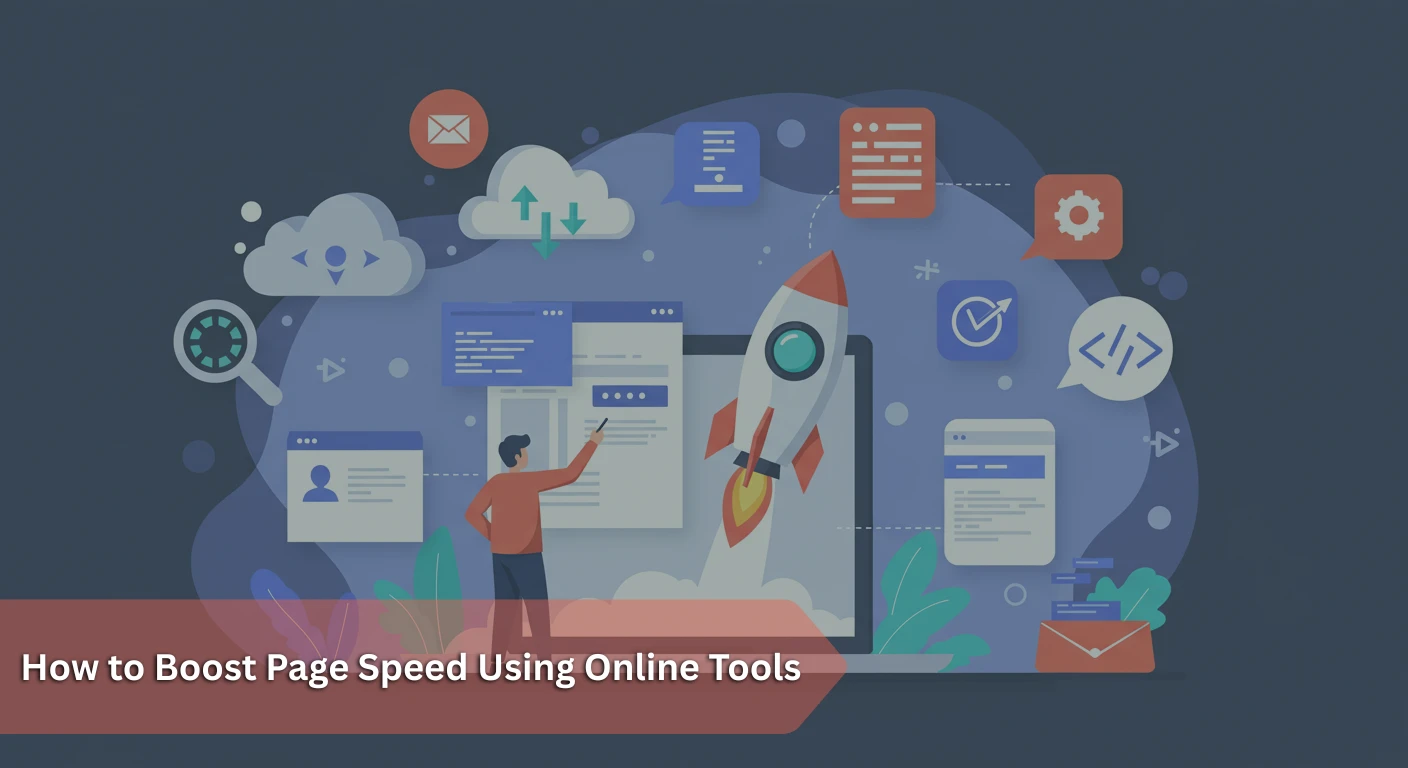
How to Boost Page Speed Using Online Tools
Ever clicked a link and waited... and waited... and just gave up? You’re not alone and that’s exactly what your visitors will do if your site loads slowly. In a world where speed is everything, your website's load time can make or break your success. Page speed is more than a convenience it's a vital SEO factor and user experience booster. Let’s dive into how to use online tools to give your site the nitro boost it needs.
Table of Contents
- What is Page Speed?
- Why Page Speed Matters
- How to Measure Page Speed
- Top Online Tools to Measure Page Speed
- GTmetrix: A Powerful Alternative
- Pingdom: Simplified Speed Testing
- WebPageTest: In-Depth Testing
- Common Speed Bottlenecks
- Fixes for Common Issues
- Online Tools to Implement Fixes
- Best Practices for Long-Term Speed
- Conclusion
- FAQs
What is Page Speed?
Page speed refers to how fast your webpage loads and displays all content. It’s not to be confused with site speed, which refers to the average load time across multiple pages on a site.
Think of page speed as the speed at which your car reaches 60 mph. Some pages rev up instantly, while others chug along, weighed down by bloated images or clunky code.
Why Page Speed Matters
SEO Implications
Search engines, especially Google, take page speed seriously. A slow site may struggle to rank, even if your content is of high quality.
User Experience
People are impatient online. A delay of just 1 second can cause a 7% drop in conversions. No one wants to wait around when they could be exploring a competitor’s faster site.
Conversion Rates
Speed sells. If you want people to click, buy, or sign up, your site had better be quick. Speed improves trust, satisfaction, and ROI.
How to Measure Page Speed
Before you can fix it, you need to measure it.
Core Metrics to Know
- Largest Contentful Paint (LCP): How long it takes for the main content to load.
- First Input Delay (FID): The time it takes for the site to respond to user input.
- Cumulative Layout Shift (CLS): Visual stability of your page as it loads.
How Google Evaluates Speed
Google uses Core Web Vitals to score your site’s performance. These factors are directly tied to your SEO rankings.
Top Online Tools to Measure Page Speed
Let’s look at the digital toolbox that can help you assess your site’s speed.
Google PageSpeed Insights
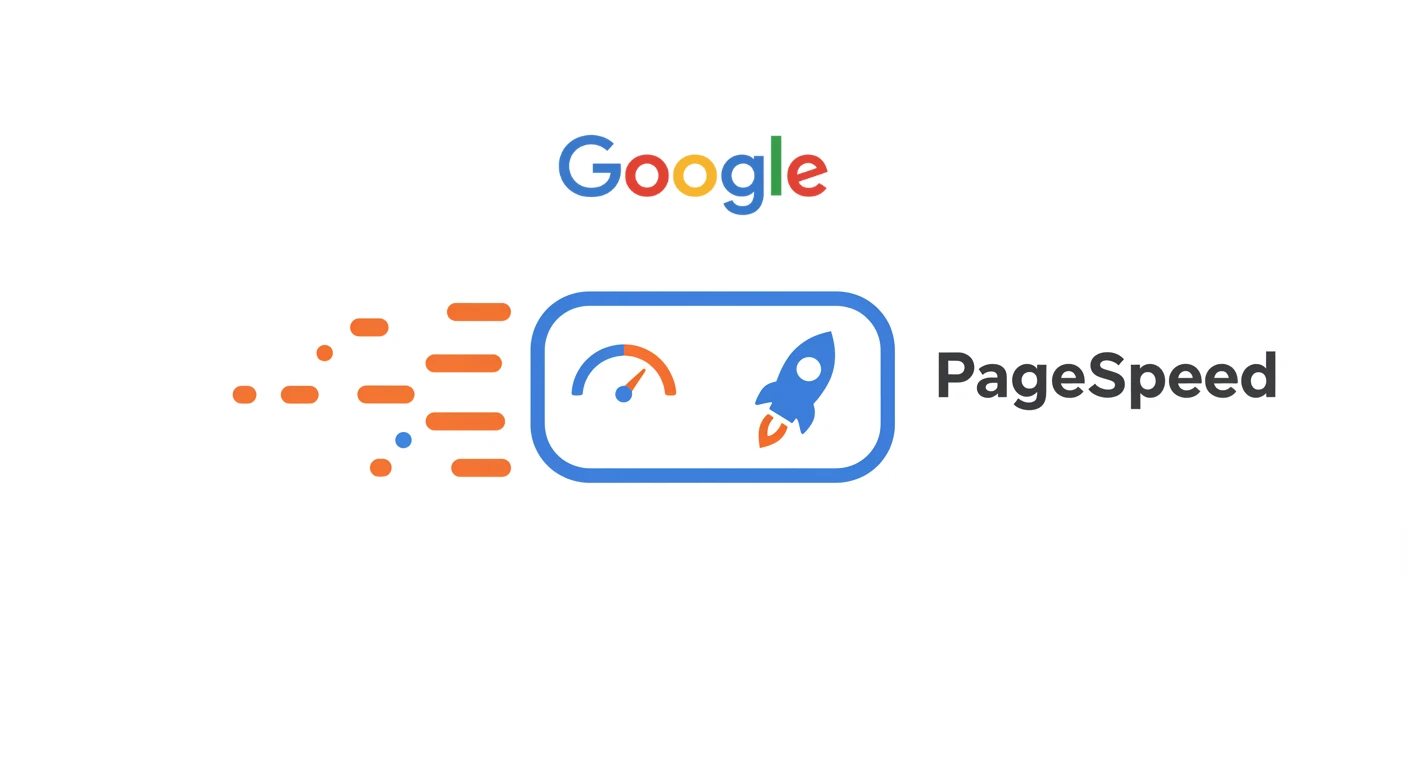
It’s Google’s tool, so it’s a must-use. You’ll receive mobile and desktop scores, along with suggestions to improve your performance.
GTmetrix
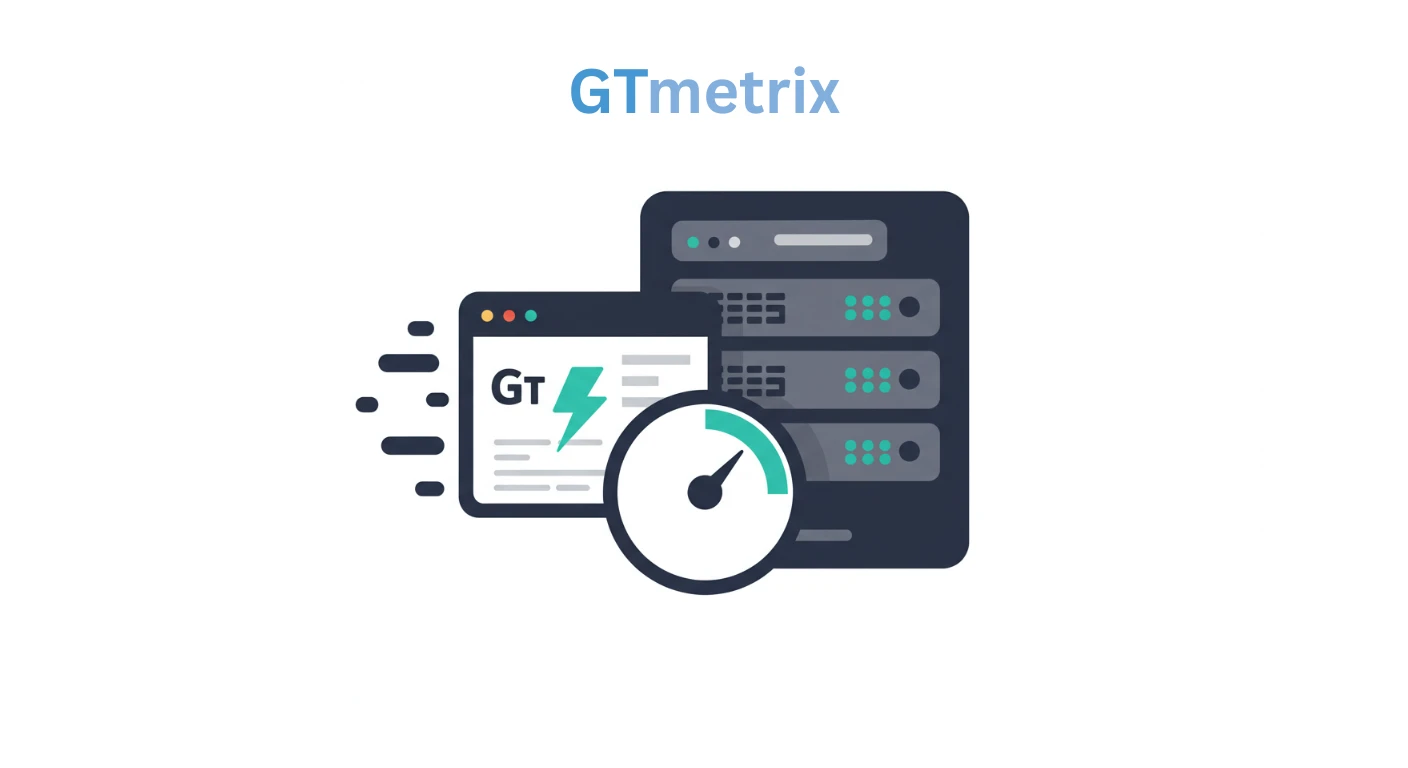
GTmetrix combines data from Google Lighthouse and other tools, giving you waterfall charts, history tracking, and actionable tips.
Pingdom

Easy to use with a clean interface. It also lets you test from multiple locations.
WebPageTest
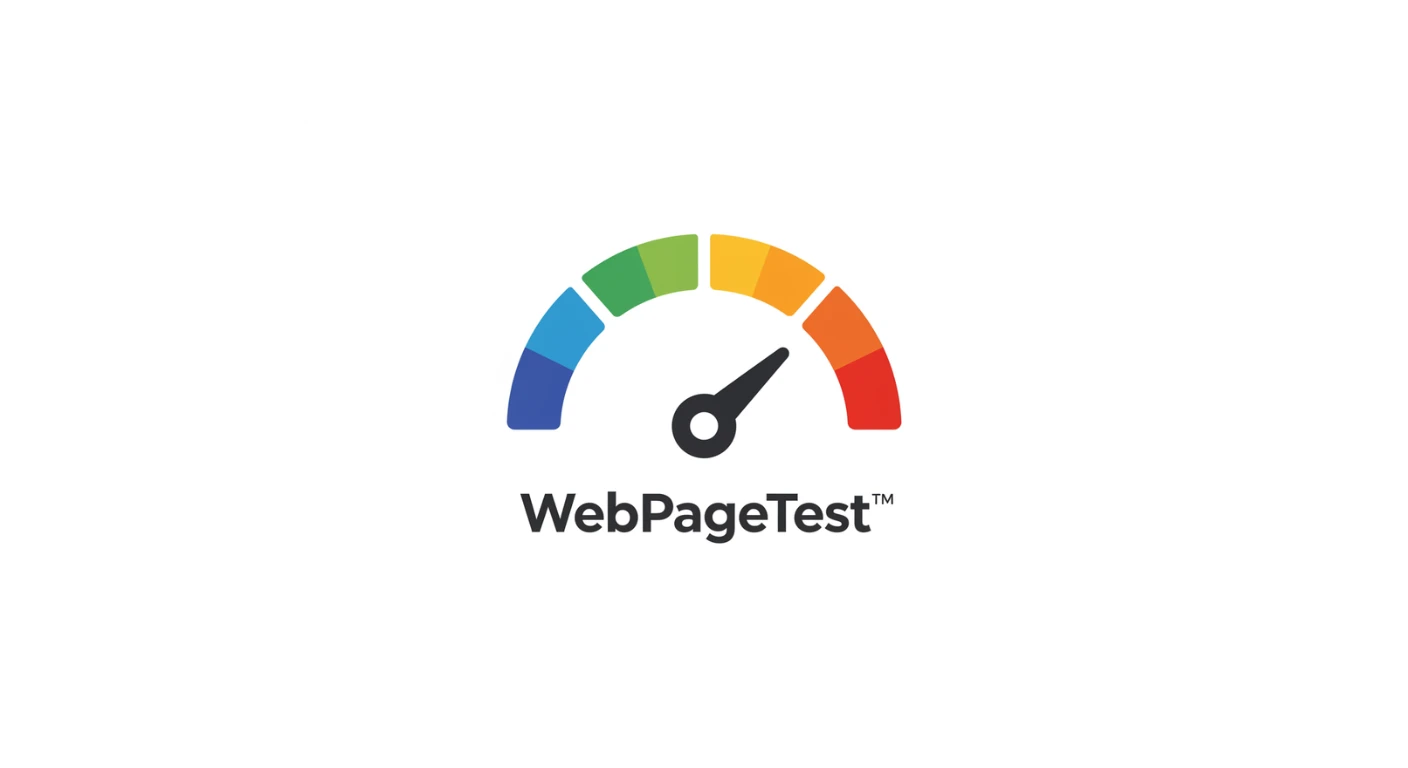
Great for developers or advanced users. It lets you simulate various devices, browsers, and connection types.
Google PageSpeed Insights Deep Dive
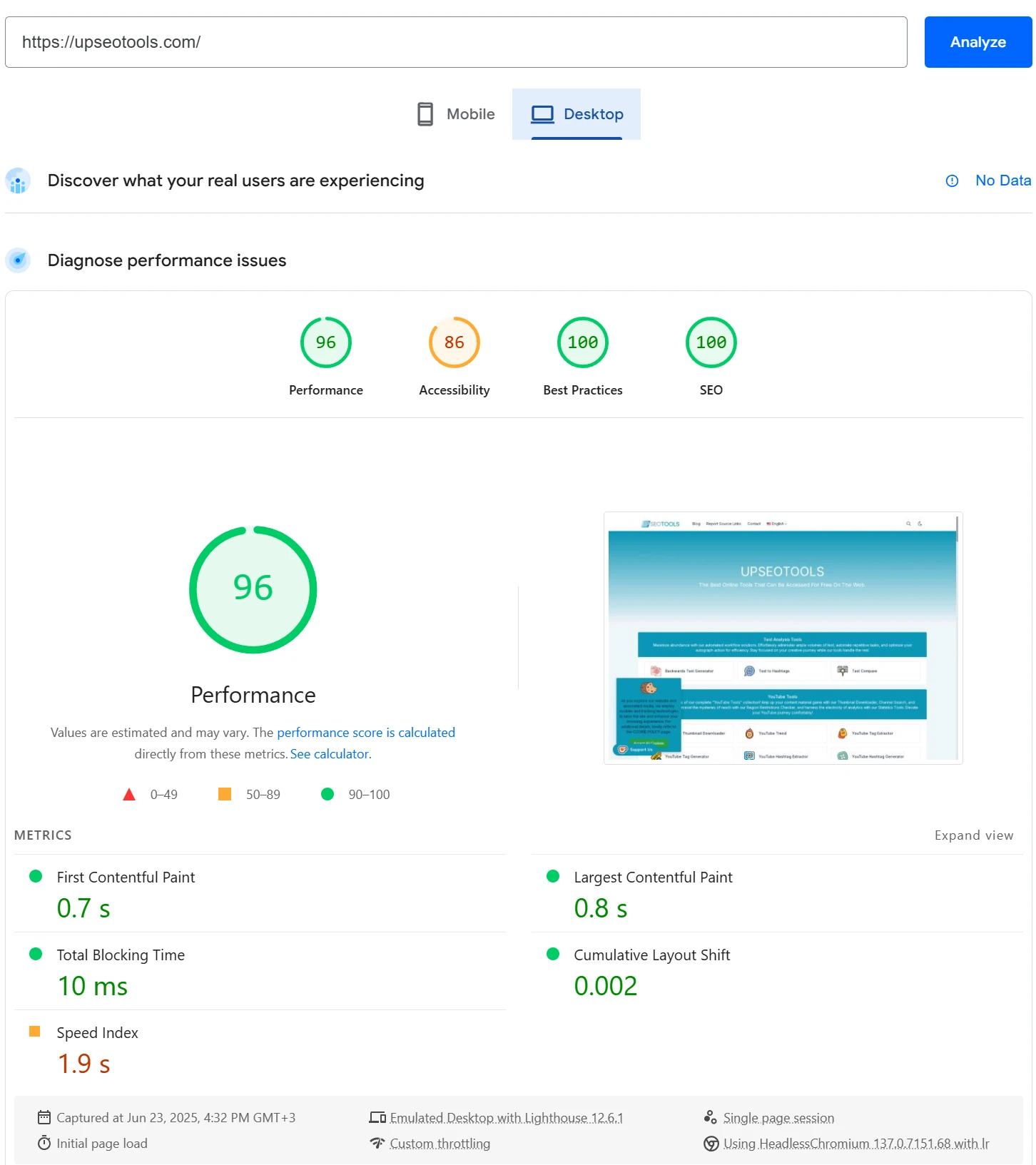
How It Works
Just enter your URL and get instant results. Google breaks your score into:
- Performance
- Accessibility
- Best practices
- SEO
Scores Breakdown
- 90–100: Excellent
- 50–89: Needs improvement
- Below 50: Poor
Mobile vs Desktop
Don’t ignore mobile! A huge chunk of your traffic likely comes from phones, and mobile performance is harder to nail.
GTmetrix: A Powerful Alternative
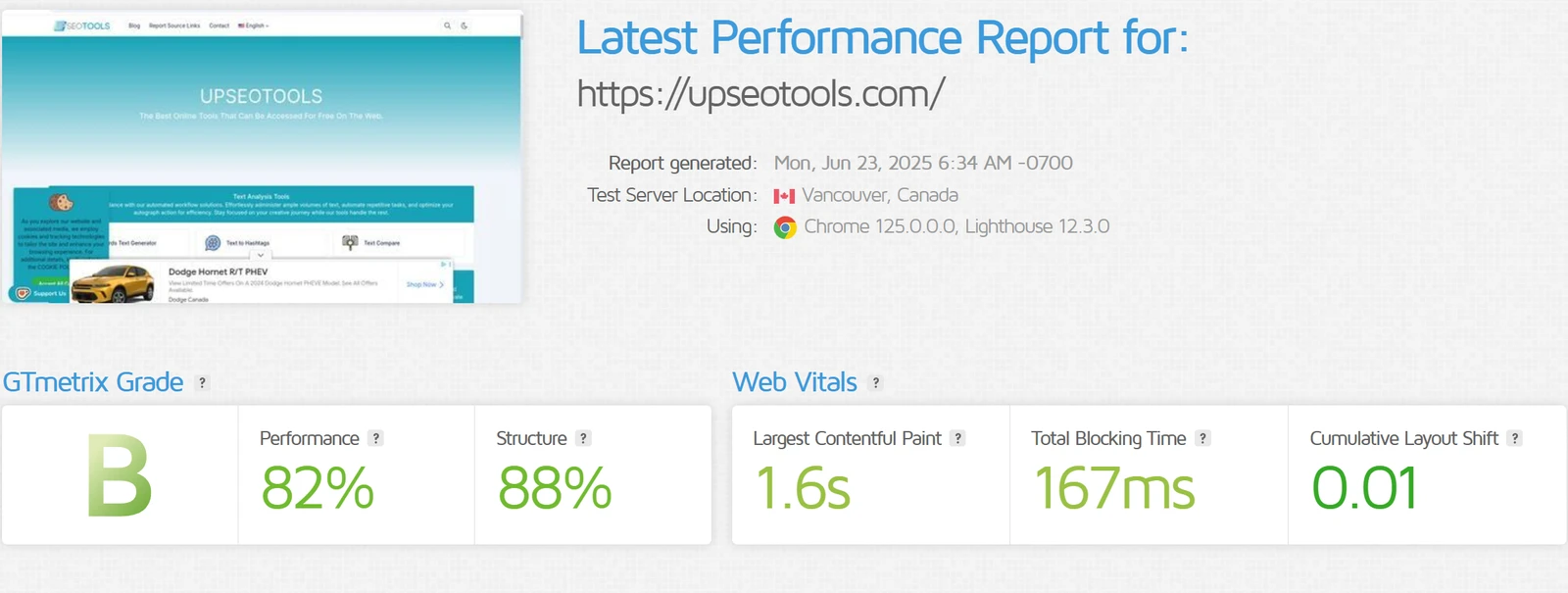
GTmetrix offers a visual waterfall chart of all loading elements, helping you pinpoint exactly what’s slowing things down.
Recommendations
- Combine CSS files
- Enable compression
- Reduce redirects
It also stores historical data so you can track improvements over time.
Pingdom: Simplified Speed Testing
User Interface
Pingdom is super beginner-friendly. You’ll get:
- Load time
- Performance grade
- Requests made
- Breakdown of content size
Interpreting Results
Check what’s taking up the most space images, scripts, or external resources and start optimizing those.
WebPageTest: In-Depth Testing
Want to get nerdy? WebPageTest is your playground.
Features
- Choose test locations
- Record loading videos
- Test on different devices and browsers
- Simulate slow connections
Common Speed Bottlenecks
1. Render-Blocking Resources
CSS and JavaScript files that block your page from displaying quickly.
2. Unoptimized Images
Large, high-res images with no compression are common culprits.
3. Too Many HTTP Requests
Each file = one request. The more files, the slower your page.
4. Poor Hosting
Cheap hosting might save money but costs you speed.
Fixes for Common Issues
Minify Your Code
Tools like MinifyCSS or UglifyJS can help reduce file sizes.
Use Lazy Loading
Only load images as users scroll down.
Compress Images
Use tools like TinyPNG or Squoosh to reduce image sizes without losing quality.
Use a CDN
CDNs like Cloudflare distribute your content worldwide for faster access.
Online Tools to Implement Fixes
TinyPNG
Drag and drop your images to compress them easily.
Cloudflare
Free CDN service with DNS optimization and security perks.
Squoosh
Another powerful image compression tool by Google.
Asset CleanUp
A WordPress plugin to unload unnecessary CSS/JS files on certain pages.
Best Practices for Long-Term Speed
- Audit Regularly: Use online tools monthly to stay in check.
- Good Hosting: Go for fast, reliable providers like SiteGround or Kinsta.
- Lightweight Themes & Plugins: Avoid bloated themes and unnecessary plugins.
- Limit Redirects: Fewer detours mean faster journeys.
Conclusion
Page speed isn’t just an SEO checkbox it’s a user magnet, conversion driver, and brand builder. Thankfully, you don’t need to be a developer to make meaningful improvements. Online tools give you the insight and power to transform your site from sluggish to snappy. Start testing, start tweaking, and watch your site soar.
FAQs
1. How often should I check my page speed?
Every month or after major content or design updates is a good rule of thumb.
2. What is a good page speed score?
Aim for 90+ on Google PageSpeed Insights for both mobile and desktop.
3. Can page speed affect mobile SEO?
Absolutely. Google uses mobile-first indexing, so mobile speed is critical.
4. Is it worth paying for premium tools?
Yes, if you're managing multiple sites or want deeper insights and historical tracking.
5. Does hosting make a difference?
Big time. Good hosting = better server response time = faster site.
Please don’t forget to leave a review.
Explore more by joining me on Patreon.
